A Filmmaker's Guide to: "Capote" (2005)
An Appreciation of Cinema (Pt. 28)
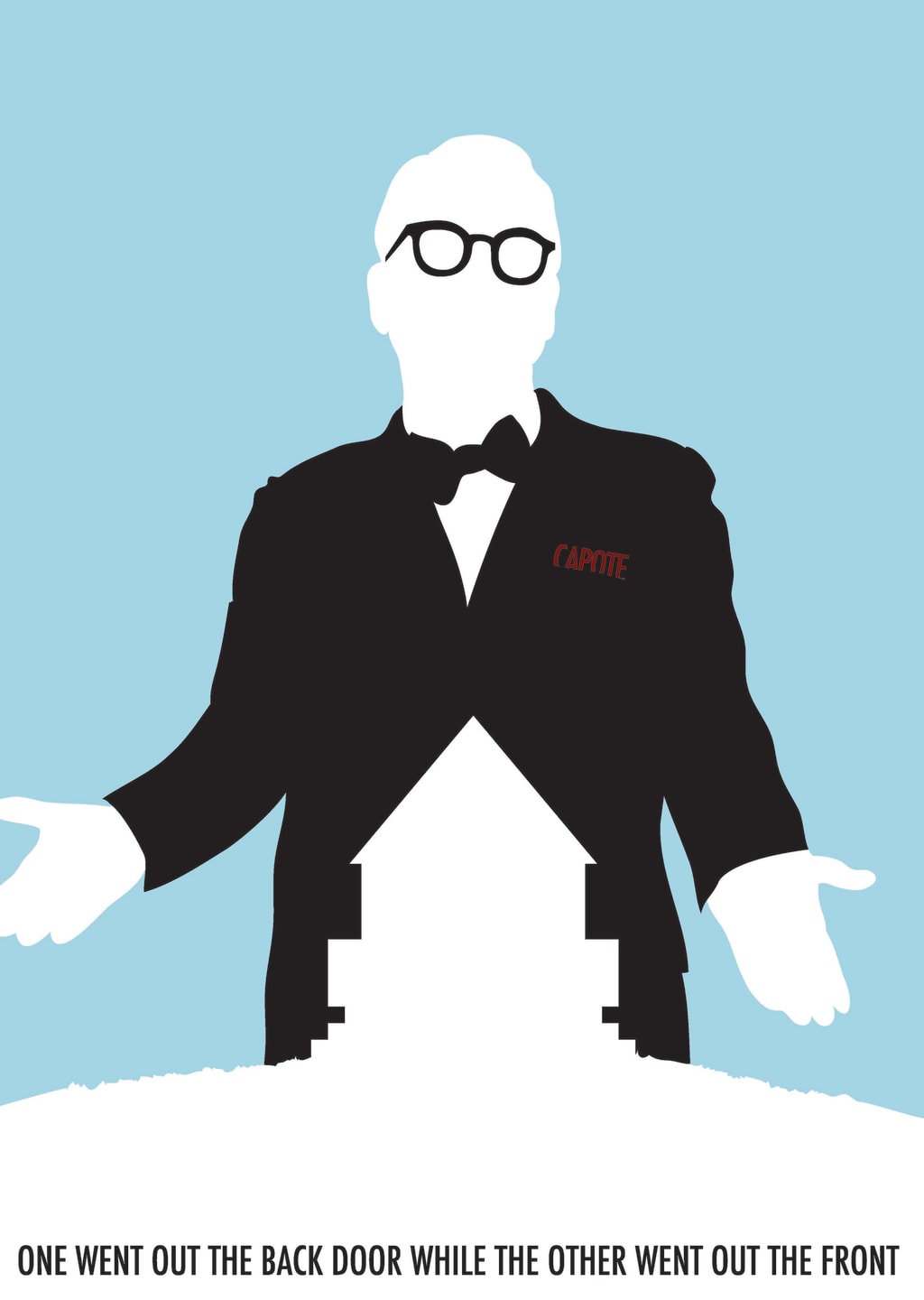
In this chapter of ‘the filmmaker’s guide’ we are going to explore some of the films that have changed our outlook of the possibilities in cinema in some way, shape or form. These can include, but are not limited to: revolutionary cinematography, narratives that challenge the social structure and the common view, trademark styles of auter cinema, brilliant adaptations of novels and other works, films of philosophical value and films that touch our hearts and souls with their incredible underlying messages and morals. Within each of the films in this chapter there is a certain something that makes them special and a certain something that makes them linger long after we have watched them for the first time. Lasting impressions are difficult to create, but I think that the films we will briefly touch on in this chapter are some of the films we will never ever forget.
“Capote” (2005) dir. by Bennett Miller
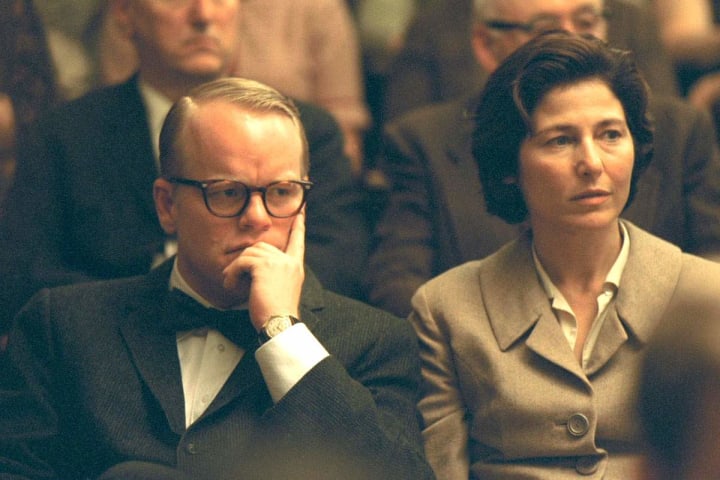
In my opinion, this film is one of the greatest biopics ever made purely because of the performance of the late, great Philip Seymour Hoffman as one of my favourite authors of all time, Truman Capote. If you don’t know the film’s premise - it isn’t actually about the life and times of Truman Capote and doesn’t really deal with the tragedy of his youth. Instead, it deals with Capote’s turn away from fictional and Southern Gothic stories and more towards this strange tale of the Southern Gothic which was very real indeed. He would research, tame, twist and manipulate the story in order to sell what was named as the world’s first modern nonfiction novel - “In Cold Blood”. Possibly one of the greatest books of the 20th century, “In Cold Blood” was a book which sought to see the monsters in normal people. It showed us that even the most normal, the most average-looking and average-seeming person could be a brutal killer. This would be a theme revived by my favourite journalist Masha Gessen, when they wrote their book “The Brothers” based on the Boston Marathon Bombing.
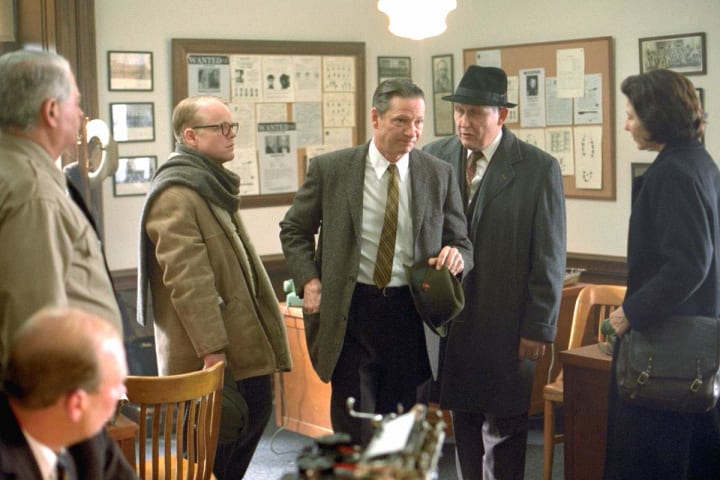
Hoffman’s performance is something we need to talk about because when I first saw that film, Hoffman’s performance of Capote just seemed so very accurate to me it was unreal. I had known and been reading Truman Capote for a while before I saw the film and chose consciously not to watch it because I thought it would disappoint me. However, I was absolutely amazed - so much so that I almost cried because it felt like I was just watching Capote in real life. When you watch an interview by Capote whether he’s on Jimmy Carson etc. you immediately notice a striking personality and character. I thought that it was absolutely incredible that Hoffman was able to imitate this almost perfectly. Even down to the voice trembling, the odd and incoherent stutter, the way he held himself with his shoulders back, but his head ever so slightly down. It was like he didn’t really know who he was and it was all of these very small things that would make Hoffman’s performance really that tad bit more unforgettable. It was impeccable, the amount of research he did and the amount of accuracy he tried to get and honestly, I was glad I ended up watching the film.
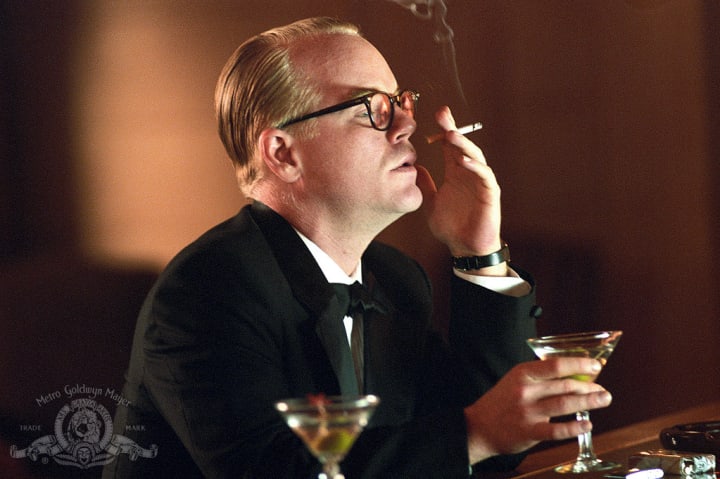
Ever since, I have seen the film around ten to fifteen times and with every watch I notice something different about the performance. There’s another layer to the research, there’s another tick in the body language, there’s an air of overconfidence with a tinge of depression and of course, there is the the tragedy of Truman Capote created by his past that is hardened in Hoffman’s approach to the murder case and its victims. Hoffman had not only tried to recreate Capote’s present, he had tried to bring in everything from his past and everything he felt would’ve made Capote even take up the attempt at a nonfiction novel in the first place.
On the night of November 14th, two men broke into a quiet farmhouse in Kansas and murdered an entire family. Why did they do that? Two worlds exist in this country: the quiet conservative life, and and the life of those two men - the underbelly, the criminally violent. Those two worlds converged that bloody night.
- Truman Capote, "Capote" (2005)
About the Creator
Annie Kapur
200K+ Reads on Vocal.
English Lecturer
🎓Literature & Writing (B.A)
🎓Film & Writing (M.A)
🎓Secondary English Education (PgDipEd) (QTS)
📍Birmingham, UK


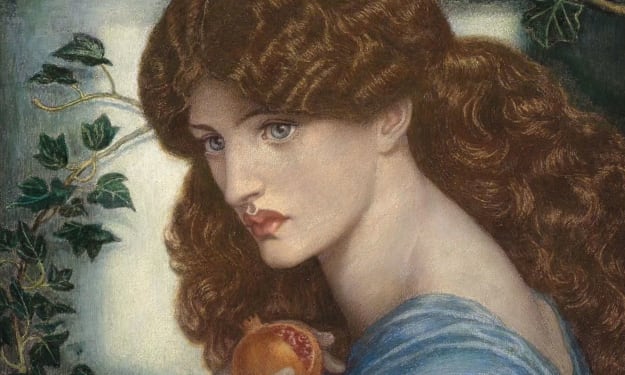



Comments
There are no comments for this story
Be the first to respond and start the conversation.